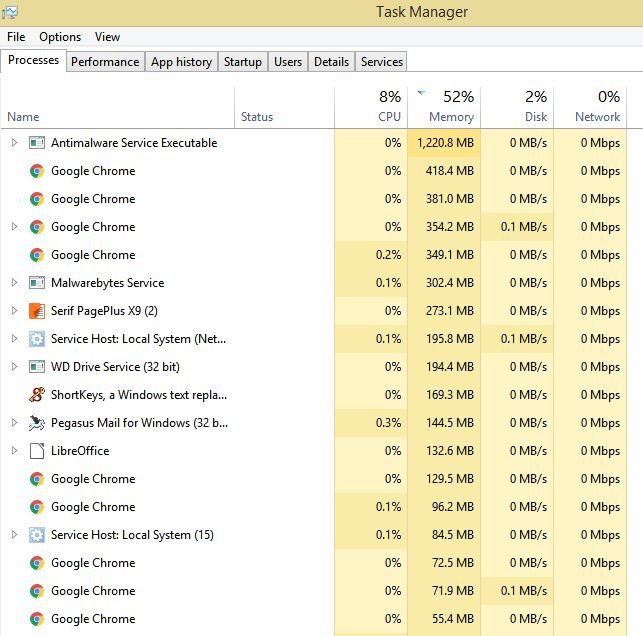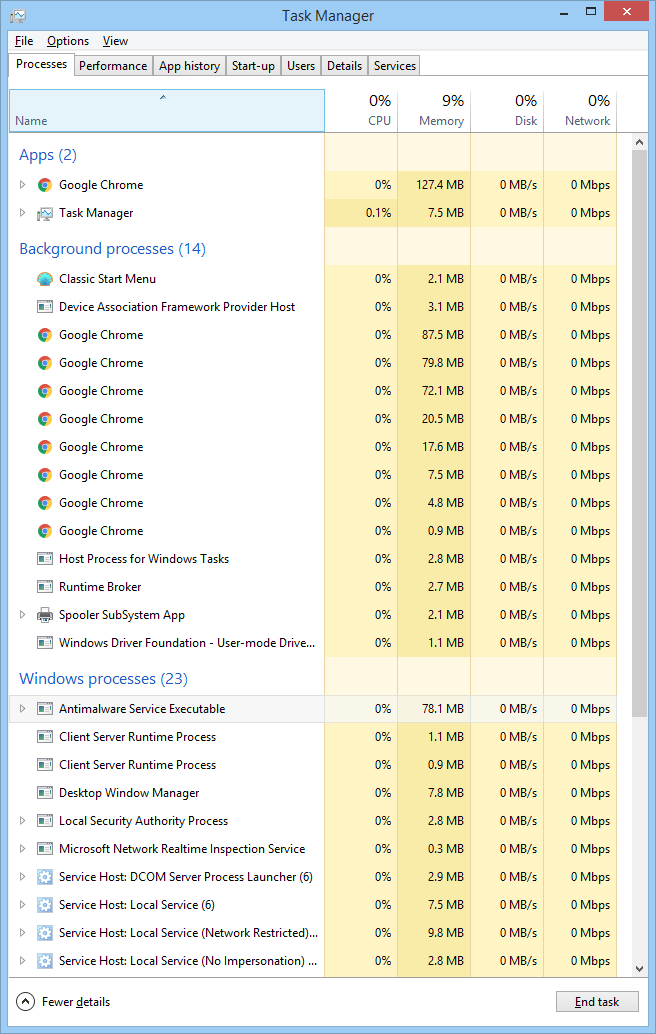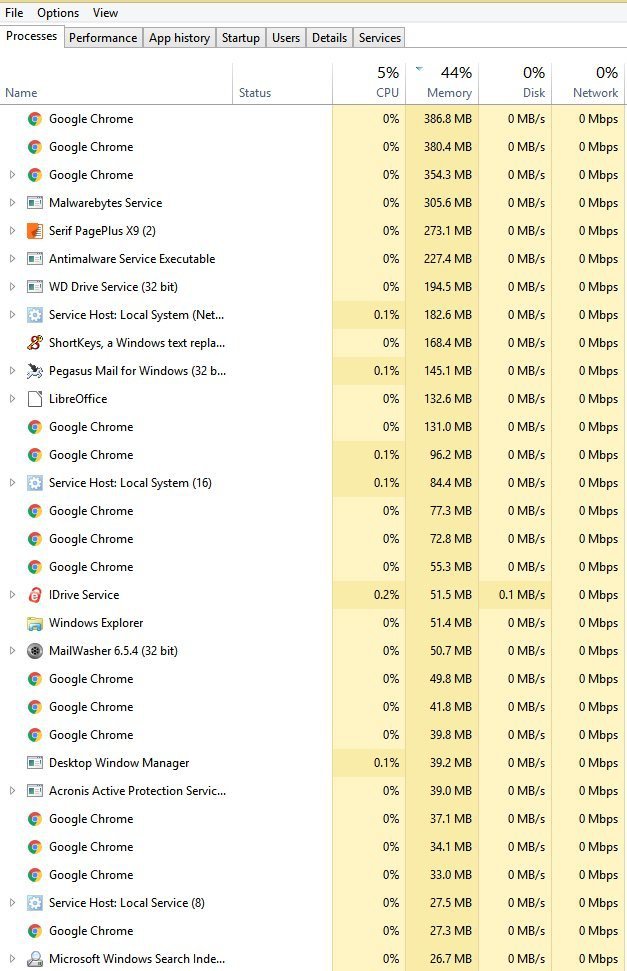MamaBear2017
Member


- Messages
- 95
- Location
- Denver
Asus with AMD FX-8310.
This is frustrating. I upgraded to 16gb over a year ago, and it's showing being used, in the System panel.
But it may have something to do with Chrome, or Malwarebytes operating simultaneously with Windows Defender ( they say that's ok ) but every once in awhile, the RAM use starts climbing, and when it gets to around 1.2gb to 1.7gb, the PC boggs down and gets very slow.
This is frustrating. I upgraded to 16gb over a year ago, and it's showing being used, in the System panel.
But it may have something to do with Chrome, or Malwarebytes operating simultaneously with Windows Defender ( they say that's ok ) but every once in awhile, the RAM use starts climbing, and when it gets to around 1.2gb to 1.7gb, the PC boggs down and gets very slow.
My Computer
System One
-
- OS
- Windows 8.1
- Computer type
- PC/Desktop
- System Manufacturer/Model
- Asus
- CPU
- FX-8310
- Memory
- DDR3 16GB
- Graphics Card(s)
- Radeon R7 240 2GB




